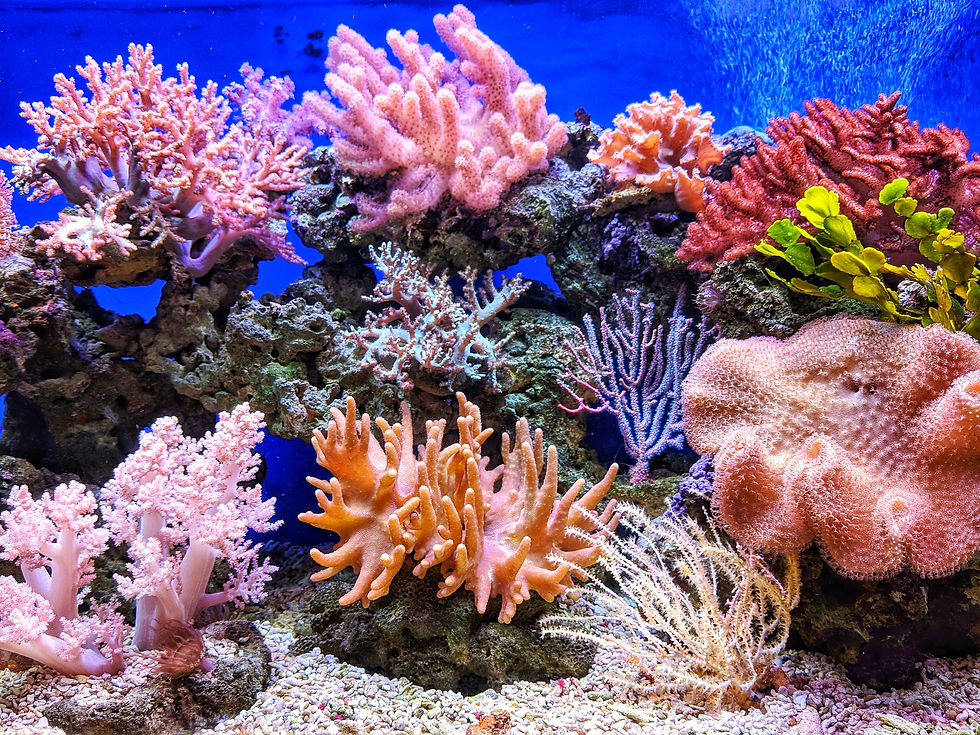The Brands Saving Our Ocean Before It’s Too Late
- Gemma Norfolk

- Jun 17, 2021
- 3 min read
Updated: Aug 16, 2021
Most of us would never dream of purposefully destroying the ocean with our fashion choices. We are completely unaware of the dangers that come with a lot of our signature and favourite clothing pieces.
But it is not just plastic bottles or bags that are causing the damage in our ocean, it is instead our wardrobes making the biggest contributing factor. It is until now, that fashion is becoming one of the most innovative industries in fighting pollution of all kinds, with new sustainable fashion becoming more fashionable than ever.
How fashion contributes to ocean pollution
Around two-thirds of our clothes are made using synthetic fibres, such as acrylic, polyester, and nylon, all of which are plastics designed to last forever.
Textiles hold the title for being the largest source of microplastics as it accounts for 34.8% of the global microplastic pollution. Quite surprisingly, the impact of just one wash has gone unreported, with 700,000 microfibres being released through every wash cycle that our clothes go through (which is quite a lot over time).
These microfibres are eventually captured by the ocean and join the rising amount of plastics in there. It’s not only damaging to the environment but is hurting our health too, as these microfibres are swallowed by the fish which are caught and ate by the wider population. Yes, we are consuming mass amounts of plastic every other day.
If this activity continues, from now to 2050, around 20 million tonnes of microfibres will enter our already threatened oceans and damage the sea life, as well as the food chain.
Devocean Co.
Devocean is a new and upcoming swimwear brand, founded in 2015, that offers very vibrant, beach apparel inspired by different cultures and designs from around the world. From Gypsy surfer to poolside babes, there’s a range of options for everyone.
“Save the sea turtles with every purchase.” Devocean Co.
They claim to have a vision of keeping the oceans clean and protecting the sea life, with their first challenge to help save sea turtles. Figures show that 20% of any company profit from your purchases are donated to FAU Marine Research Lab at Gumbo Limbo Nature Centre and the non-profit Friends of Gumbo Limbo, saving the lives of thousands of turtles every year.
Reformation
Reformation carries an entire brand around the idea of sustainable and ethical fashion practices. They offer tips on how you can cut down your contribution to ocean pollution, for example, how to travel sustainably. With their 1.6 million followers on Instagram, they are putting their influence to good use by spreading awareness and promoting everyday things you can do to make a change to your fashion habits.
“By 2050 there will be more plastic in the ocean than fish.” Reformation
A new collection in 2019 proved their commitment to making change, with one of their swimwear collections being constructed completely out of ECONYL, which is a regenerated nylon fibre that is made from the ocean and landfill waste, making sure it doesn’t end up in the wrong place.
They believe that by 2023, all of their fabrics for clothes will be from safe, recycled, regenerative, or renewable sources, being one of the first fashion brands to make this significant remark.
adidas
In preparation for the COP 21 climate summit in Paris in 2021, adidas partnered with ‘Parley for the Oceans’ and have developed a contemporary footwear product named ‘Ocean Plastic’. These new shoes will be made completely out of reclaimed ocean waste, such as plastic that has been thrown into it, or illegal gill nets which are highly harmful to the environment.
“The 3D-printed Ocean Plastic shoe midsole stands for how we can set new industry standards if we start questioning the reason to be of what we create.” Eric Liedtke, a member of Adidas Group’s executive board
The fashion industry is in a unique and valuable place to address the problem of ocean pollution due to its huge contributing factor. Fashion is able to communicate messages regarding consumerism and can make huge changes with how their products are manufactured.
Think about all the packaging that is used when you receive your order, according to the Environmental Protection Agency, containers and packaging accounted for 30% of total solid waste generated in the US in 2012.
The message is that things can only change if the standard is raised, steering other brands and manufacturers in the right direction and through everyone being more sustainable, we can help protect our oceans before it’s too late.



Comments